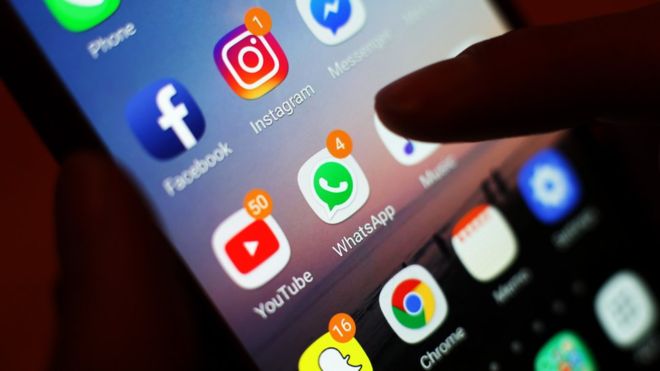Fake news :a democratic crisis
July 28, 2018 | Expert Insights

An inquiry carried into fake news by UK’s DCMS committee says electoral law needs to be updated and tech companies need to do more to stop malicious propaganda on their networks. The committee warned that UK faces a “democratic crisis” due to the spread of “pernicious views” and the manipulation of personal data.
Background
The term “Fake news” has become increasingly popular due to its linkage to debates surrounding democratic process and free speech in the information age. US President Donald Trump has taken credit for coining the term “fake news.”The term has been used by authoritarian leaders, such as Duterte and Maduro, in order to suppress and discredit unfavorable coverage. In a move that has been criticized as an attack on free press, Malaysia recently passed a law that allows jail terms of up to six years for spreading “fake news”. Singapore has also announced its intention to implement anti fake news legislation.
In recent years, the growth of social media has enabled the spread of misinformation. In some instances, such as the UK EU referendum, and the 2016 US Presidential elections, influence and misinformation campaigns are thought to have had a significant impact on the outcome of the vote. During the run-up to the election, major news providers, such as BBC, noted the prevalence of fake headlines such as “Hillary Clinton sold weapons to ISIS” and “Pope Francis endorsed Donald Trump for President.”
Considering that social media is now a primary source for news and information, several dangers surrounding the phenomenon of “fake news” are growing. The most high-profile example of misinformation in social media that could affect democratic values was the report surrounding the 2016 US presidential election. Determining the measure and countering the false news in the digital age is presently still in its early stages.
AnalysisUK’s Digital, Culture, Media and Sport (DCMS) Committee has been investigating disinformation and fake news following the Cambridge Analytica data scandal.Damian Collins, who chairs the DCMS , called the issue "a crisis in our democracy - based on the systematic manipulation of data to support the relentless targeting of citizens, without their consent, by campaigns of disinformation and messages of hate".The MP's want a "digital Atlantic charter" to protect people's personal information and their rights in the digital world.
In March, a whistleblower revealed that Facebook had allowed the private information of millions of users to be collected without their knowledge and then given to a company called Cambridge Analytica.Vote Leave, the official Brexit campaign group paid a Canadian company, AIQ, linked to Cambridge Analytica to carry out work in targeting voters on social media.In July, the Electoral Commission fined Vote Leave for breaching spending limits by channelling money through another campaign group to pay for more social media adverts with AIQ.
Companies such as Facebook and YouTube have repeatedly said they are just a "platform", rather than a "publisher". "Social media companies cannot hide behind the claim of being merely a 'platform', claiming that they are tech companies and have no role themselves in regulating the content of their sites," the committee said. The committee further criticised the growth and business model of these social media firms.
The committee said electoral law needed to be "updated to reflect changes in campaigning techniques". It suggested that online political advertisements should have a digital imprint stating who was responsible, as is required with printed leaflets and advertisements. It proposed that electoral fraud fines should be increased from a maximum of £20,000 to a percentage of organisations' annual turnover.
Increased regulation of social media sites would result in more work for organisations such as the Electoral Commission and Information Commissioner's Office (ICO).The committee suggested a levy on tech companies should fund the expanded responsibilities of the regulators.The money should also be spent on educational programmes and a public information campaign, to help people identify disinformation and fake news.
The committee warned that fake accounts on sites such as Facebook and Twitter "not only damage the user experience, but potentially defraud advertisers".It suggested an independent authority such as the Competition and Markets Authority should audit the social networks.It also said security mechanisms and algorithms used by social networks should be available for audit by a government regulator, to ensure they are "operating responsibly".
Counterpoint
The report was criticised by the former campaign director of Vote Leave, Dominic Cummings.He linked to the publication on his blog saying "Here is the DCMS Report on Fake News. It is… fake news."
State-sponsored trolling, or digital harassment of critics, are worse than fake news, says a report by the human rights lawyer Carly Nyst and Oxford University researcher Nick Monaco.
Assessment
Our assessment is that, as stated earlier, the spread of fake news, especially through social media has been a cause of concern for governments across the world. We feel that the committee’s suggestions to update electoral law and tougher regulations to tech companies is an laudable effort to limit the spread of fake news which is seen as an threat to democracy.We believe that the committee’s proposal to audit social networks by an independent body must be extended to state-sponsored digital activity as this will combat both fake news and state-sponsored trolling.








Comments